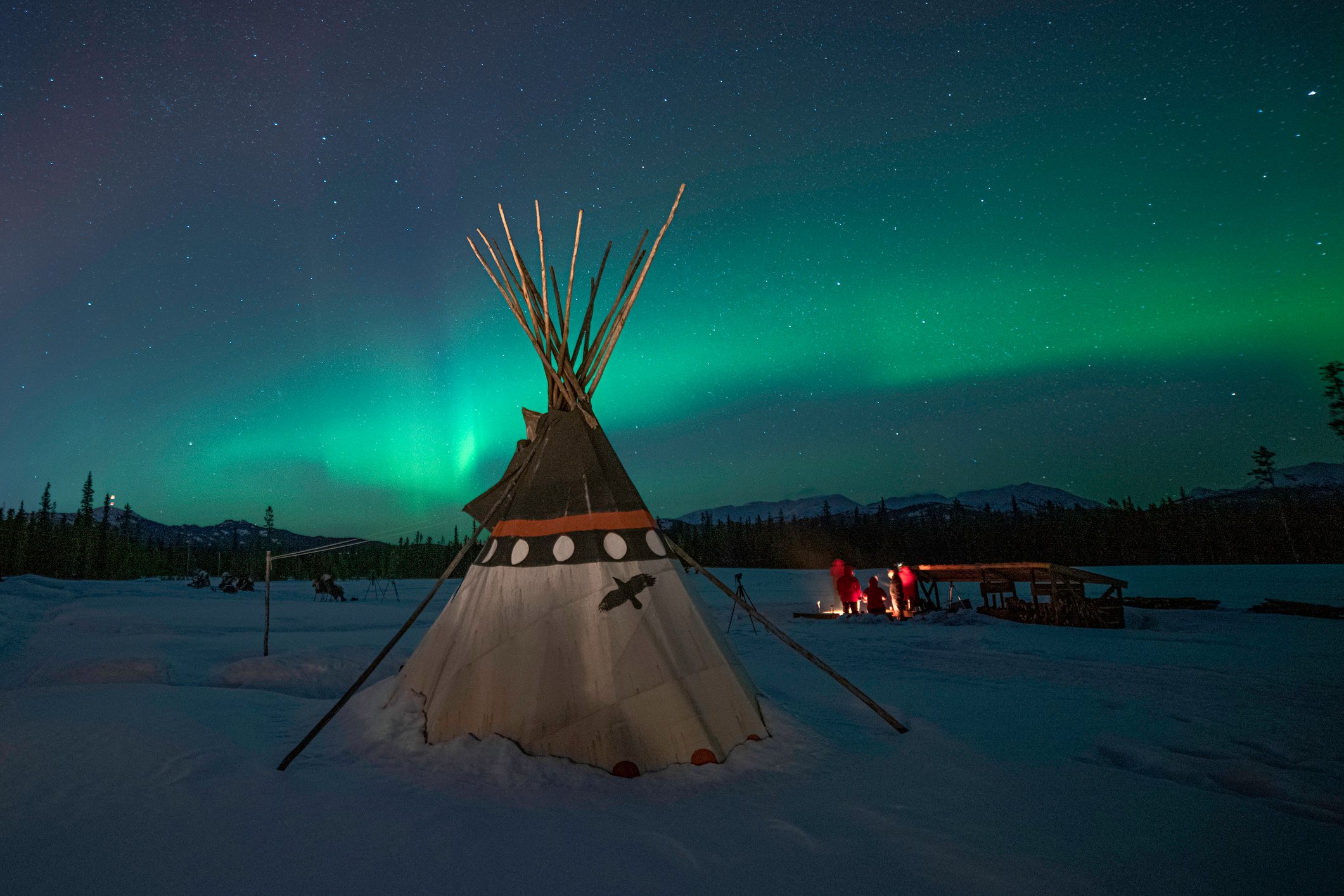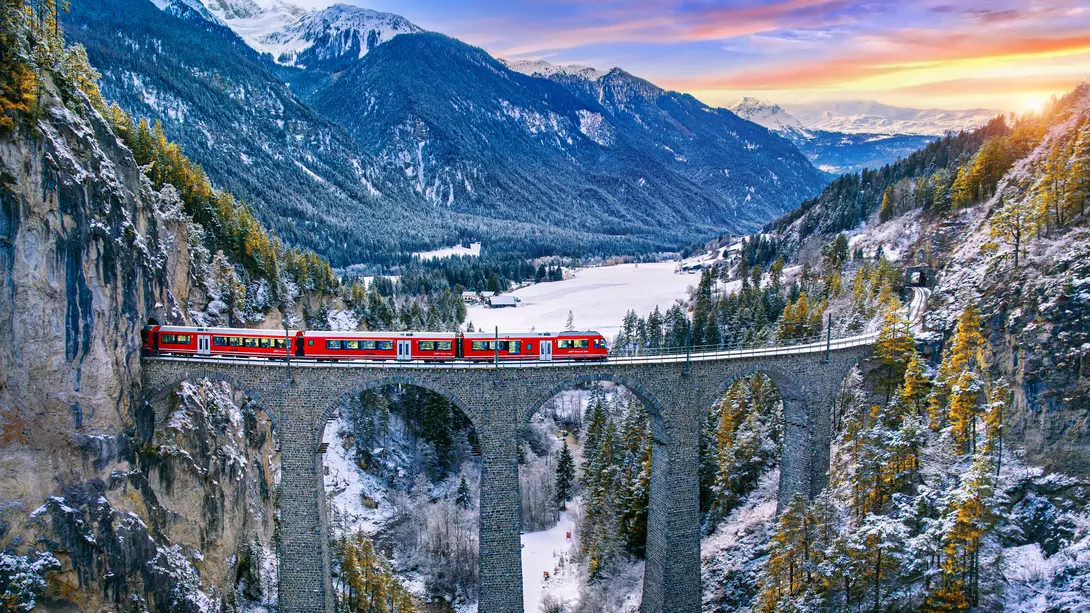Culture & Traditions
Step into Canada's vibrant tapestry of multicultural heritage and landscapes.
Canada’s cultural heritage is as dynamic and diverse as its incredible natural landscapes, from the Rockies to the Great Plains, the Northern Territories, and the Maritimes. Canadian culture draws from traditions and influences from around the world, and the country celebrates its multicultural identity in its art, music, architecture, and language.
Canada was colonized by the French in the 16th century and later by the British in the 18th century before declaring independence on July 1, 1867. As a result, Canada is now a bilingual country with English and French as its official languages, but you’ll also hear over 60 Indigenous languages as well as many international languages spoken throughout the country.
Canada is a mosaic of cultures and Canadians proudly embrace the contributions from various cultural backgrounds, nationalities, and religions with warmth and inclusivity. Canadians also have a reputation of being overly friendly, so don’t be surprised to hear an unexpected sorry here and there!
What is the visiting etiquette in Canada?
If you have been invited to a Canadian’s home, punctuality is appreciated, plan to arrive on time, or a couple of minutes late is okay too. You’ll likely receive a hand reached out for a friendly shake when first meeting someone. Once you know someone better, a half hug is common, or in Québec the double cheek kiss is often used. You’ll be expected to take your shoes off at the door of homes, as the multitude of weather conditions makes shoes dirty and unwelcome indoors. Giving a host gift is not necessary, but if you wish to bring something small that would also be acceptable.
Being served a meal at a home will likely be informal, with no assigned seating, but it's always okay to confirm with the host first. Common courtesies are followed, such as waiting until the host has started eating or proposed a toast before the meal begins. It is typical for dishes to be passed around the table, with no requirement to eat each item. If it doesn’t appeal, just keep passing it along. The host may offer a second serving, and it's acceptable to decline or accept. After everyone is done eating the meal, offering to help out the host with clean up is common.
What is Canada best known for?
One of the most defining aspects of Canadian culture is the shared passion and respect for the country’s beautiful natural environment. Canadians love to connect with their natural environment through outdoor sports and activities, including skiing, snowboarding, and snowshoeing in the winter to hiking, canoeing, and camping in the summer. One of the most iconic outdoor pastimes in Canada is pond hockey or shinny, where people play ice hockey on outdoor rinks or frozen ponds.
The vibrant cultural hubs of arts and entertainment in Toronto, Montreal, Vancouver, Edmonton, and several other cities simultaneously showcase Canadian culture while fostering community and a shared Canadian identity. Canadian actors, musicians, and filmmakers like Ryan Reynolds, Celine Dion, Drake, Denis Villeneuve, and many more have earned global recognition for their talent and creativity while proudly sharing Canadian culture with the world.
What are some Canadian traditions?
Canada Day held annually on July 1st marks the country’s birthday, the day when the Confederation Act was officially signed in 1867. This nationally celebrated day is a statutory holiday and features an abundance of Canadian red and white maple leaf flags, parades and public events. You might find communities celebrating with a large pancake breakfast, or families gathering for backyard barbeques complete with hamburgers and hot dogs. In the evening, major cities see their skies lit up for firework presentations and musical acts. Canadians come together to show their pride for their country and celebrate Canada and its history.
Annually in October Canadians celebrate Thanksgiving Day, historically marked as a day to commemorate the fall farming harvest. Family and friends gather at homes to enjoy a lengthy, large meal, often serving roast turkey or ham. Other popular seasonal dishes served include gravy topped mashed potatoes, herby bread stuffing, and roasted root vegetables. There is even pumpkin pie for dessert - a spiced pumpkin based custard in a flaky crust topped with whipped cream. Don’t turn down an opportunity to join in on a Canadian’s Thanksgiving feast, you’ll leave both thankful and stuffed!
What are Canadian people like socially?
Canadians are generally quick to be friendly, and care about the needs of others. Politeness and personal space amongst people, including queues waiting in lines, or for public transit, is common. Don’t be surprised if a Canadian makes small talk. A friendly smile and brief exchange (often about the weather!) is common between store staff and customers. You might even receive a “how’s it going?,” which should not be taken literally, it can be responded with “good.” Avoid chatting about politics or religion, keep conversations light and informal, as Canadians tend to respect privacy. Don’t lean in too close while chatting, a little bit of breathing room is appreciated.
While socializing, exhibiting a sense of humility and self depreciation is common. Even if an apology isn’t required, you might hear some confusing “sorry’s” during a night out with a Canadian. In building friendships, Canadians value honesty, and empathy.
There are some regional differences in conversation styles. In Québec, you are more likely to encounter social situations with French Canadians that maintain a little less personal space between speakers. Conversations tend to be livelier, louder, with more animated gestures while speaking. In Western Canada you may experience a friendly and relaxed, but also direct, communication style.
What languages are spoken in Canada?
English and French are Canada's official languages. English and French are formally the official languages of Manitoba, New Brunswick, and the three territories while Ontario, British Columbia, Alberta, and Saskatchewan formally recognize English as their official language, while Québec formally recognizes French as its official language. There are also several indigenous languages in Canada, including the Cree languages, Ojibway, Inuktitut, Oji-Cree, and Mi'kmaq.
If you are traveling to Québec, learning some French phrases will delight locals, such as using bonjour (hello) and au revoir (goodbye) when visiting stores. Also, consider politely asking someone "parlez-vous anglais" (do you speak English?), before trying to ask them a question.
Travel Stories
Get inspired about Your Trip to Canada
Unlock more by subscribing to our newsletter
With our newsletter, you’ll get access to regular communications that inspire you and help you explore the world your way



